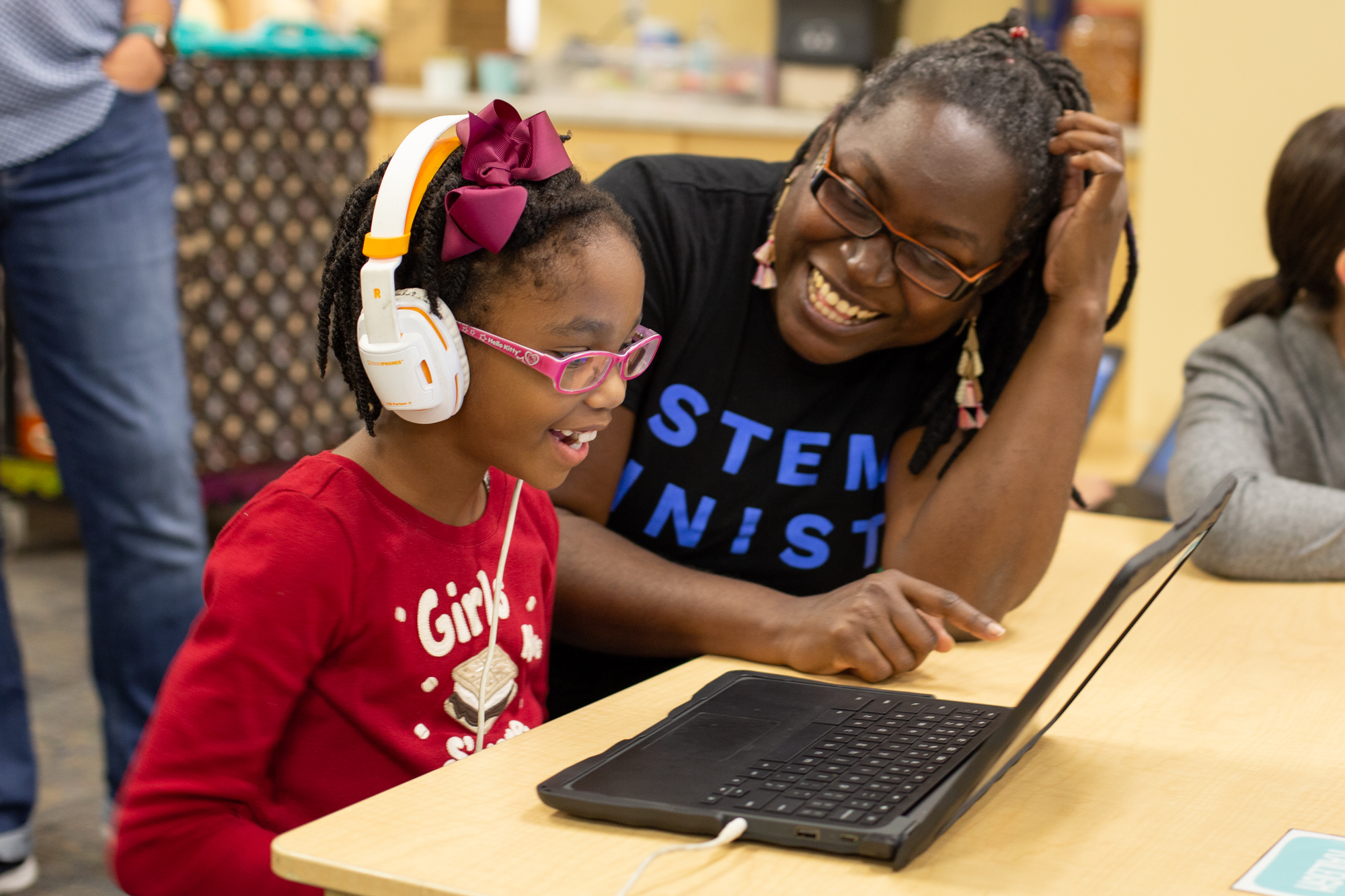Learn to teach Computer Science (CS)!
Join a community of aspiring K-12 computer science educators and prepare for the Florida CS Certification Exam. No prior CS experience required!
Full and partial scholarships are available to join the 2024-2025 cohort (beginning fall semester 2024) for the CS Education Certificate Program. Elementary, middle, and high school teachers are welcome to apply!
The University of Florida (UF) Computer Science K-12 Teaching Graduate Certificate is a 12-credit hour program with four courses. This fully online, job-embedded program is a collaboration between the College of Education and Herbert Wertheim College of Engineering. This one-year program includes the following four courses:
ETE 6141: K-12 Computer Science Pedagogy I
This is the first of a two-course sequence, where students will be introduced to a variety of different conceptualizations and pedagogical approaches for computer science education for K-12. In this course, students will spend their time at the micro level, learning about the strategies for teaching computer science as well as components involved in developing lesson plans. In the subsequent course, students will shift to the macro-level, where they will learn how to develop entire units of instruction.
ETE 6142: K-12 Computer Science Pedagogy II
This is the second of a two-part sequence focused on computer science pedagogy in K-12 schools. In the previous course, students spent their time at the micro-level, learning how to develop isolated lesson plans. In this course, students will spend their time at the macro-level and learn how to develop entire units of instruction. Building on the first course, students will examine factors influencing teaching, learning, and assessment of robust computer science curriculum aligned to national and state standards. Emphasis is placed on developing computational thinking and reinforcing computer programming concepts.
EDG 6805C: K-12 Computer Programming Foundations I
This first course in a two-part series introduces the principles and practices of object-oriented (OO) programming and procedural programming, and the evolution of hardware, software, and networking technologies. Programming topics include traditional programming constructs (i.e., sequence, selection, and repetition); class definitions; class versus instance properties and methods; abstraction; encapsulation; inheritance and multiple inheritance; polymorphism; software design techniques; problem-solving; and introductory user interfaces. Additional topics cover current software, hardware, and network terminology and technologies. The concepts are utilized in numerous activities in the course. This course is targeted at in-service K-12 teachers who intend to teach computer science in their schools and school districts.
EDG 6806C: K-12 Computer Programming Foundations II
This second course in a two-part series introduces the principles and practices of software design, basic data structures, and the historical and social aspects of computer science. Programming topics include a review of foundational programming concepts covered in the first course, exception-handling, recursion, linked lists, stacks, queues, priority queues, binary trees, graphs, and advanced sorting algorithms. Special attention will be placed on efficient algorithm design and Big-O notation. Additional topics cover historical and social aspects of computer science with implications for the future. The concepts are utilized in numerous activities in the course. This course is targeted at in-service K-12 teachers who intend to teach computer science in their schools and school districts.
This cohort will begin August 22, 2024 and end April 23, 2025. Applications are due July 1, 2024 and require a $30 application fee. Application information will be sent to you following your submission of the interest form. This initial investment is recoupable contingent on acceptance into the program and eligibility for the scholarship from Reboot Representation.
How can I learn more about this program?
We held webinars on the following dates to discuss the graduate certificate program and the scholarships:
- Wednesday, April 24, 2024 at 7PM
- Thursday, May 2, 2024 at 7PM
- Tuesday, May 21, 2024 at 7PM
Fall 2024 program overview
We have completed our scheduled webinars, but this video can help you learn about this program:
Why get certified to teach CS?
Teaching CS is fun! And computer science teachers are in demand: in the 2023-24 school year, Florida certified CS teachers received a cash bonus from the state. The CS education field is always evolving, but the fundamentals remain the same… so now is a great time to get started!
What will I get from this program?
Upon completion, you will be able to:
- Use pedagogical approaches for teaching K-12 CS
- Create and evaluate CS curriculum and instructional resources
- Create robust and computationally sound CS programs addressing a range of problem domains using Scratch and the Java programming languages
- Prepare for the Computer Science K-12 FTCE (Florida Teacher Certification Exam) in Computer Science
And you will receive:
- A certificate in CS Education from UF College of Education
- 12 credit hours that can be applied to an Online MAE or Online Ed.D. degree at the University of Florida if you meet all other admissions criteria
What supports are available for this program?
The 2024-2025 cohort will receive the following benefits:
- A mentor to guide you, answer your questions, and support your CS education career goals
- Tutoring support for your computer science coursework
- State certification exam preparation resources
Are there scholarships available for this program?
Yes! Financial support is available through several philanthropic initiatives, which supports a cohort of in-service Florida teachers who are committed to ensuring that all their students have access to high quality computer science education. Preference is given to public school teachers. If you are a K12 teacher and would like to be considered for a scholarship, please view this document: How to apply to the CSE Certificate.


